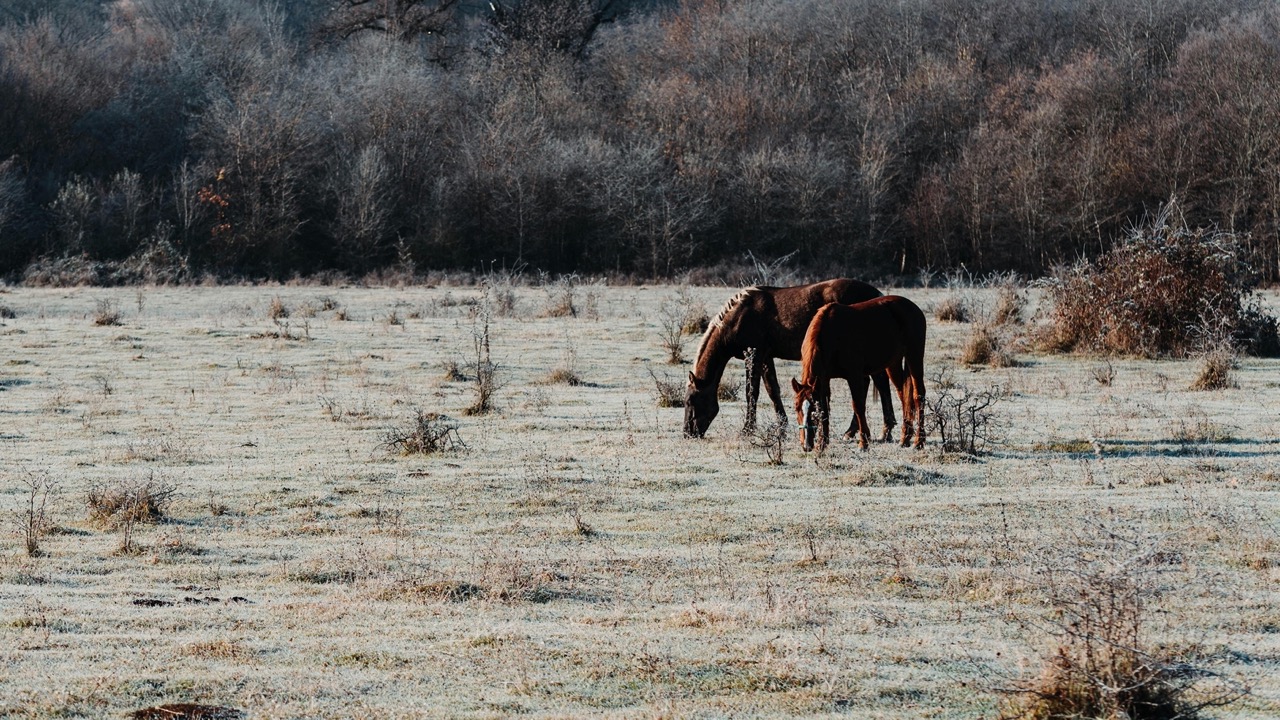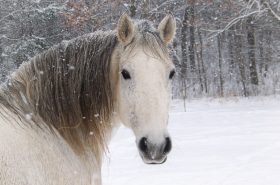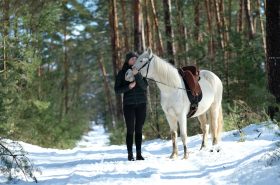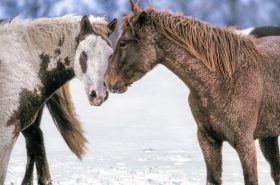A new season is nearly here! Winter will bring cold temperatures, snow, mud, and other
unique challenges.
You may be pulling out your horse’s blankets and adjusting their grain ration, but don’t forget about their hooves. In the winter, your horse’s hooves will
need some extra care to thrive.
Winter Hoof Care Tips
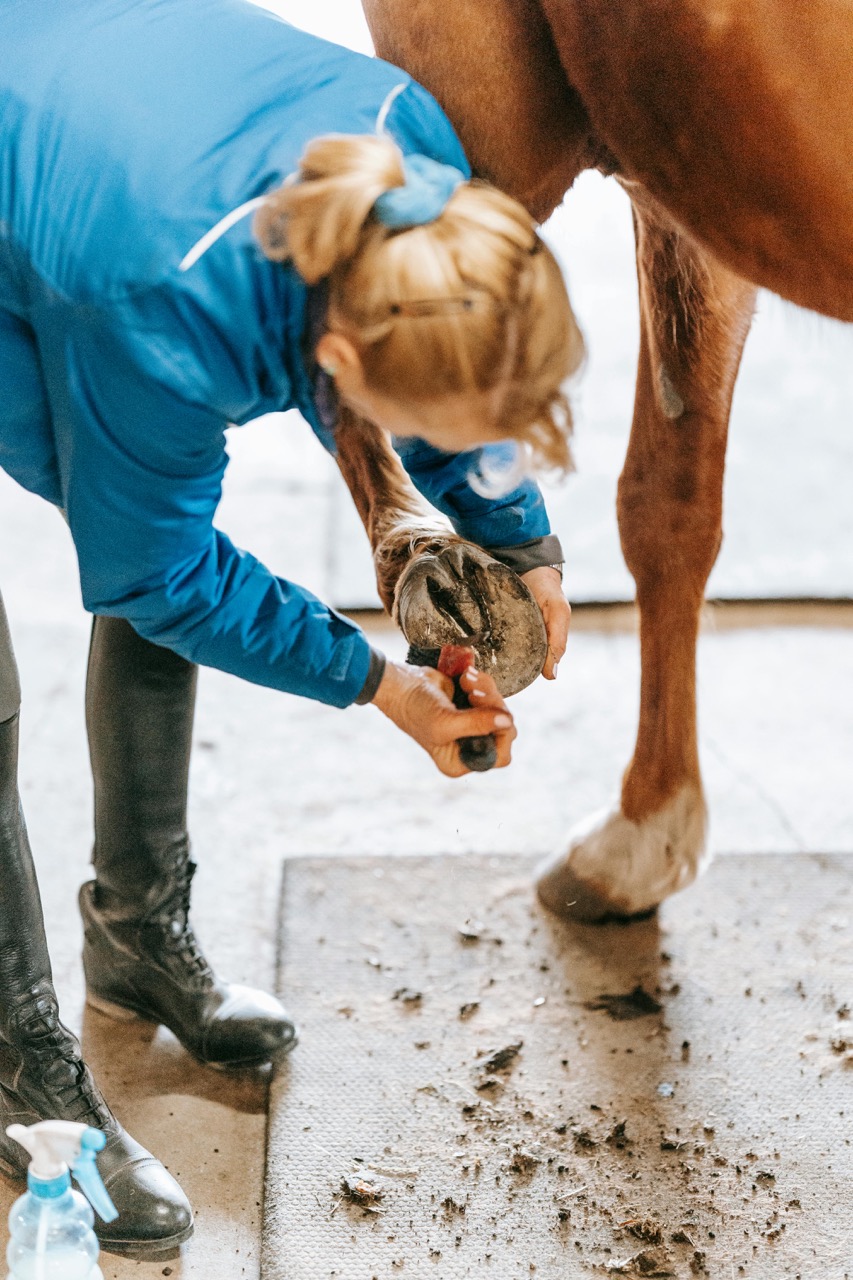
In warmer climates, mud can become a real issue. When it’s not quite cold enough for the ground to freeze, your horse’s field can quickly turn mucky. All that moisture can cause fungal issues like thrush and scratches. Make sure to perform daily hoof checks! If you’re able, invest in a dry lot with footing like gravel.
For those that get snow, you’ll have to worry about “snowballs” forming in their hooves, especially if your horse has shoes. You can use oil on the bottom of the hooves to prevent a buildup of snow from forming. Your farrier can also install a rim or full pad to eliminate snowballs.
Borium or studs will also give your horse extra traction during icy conditions.
Walkways should be safe and free of ice. Make sure to put down salt or sand to create safe paths. Additionally, be aware of what is hiding under snow, whether it’s ice or debris. You don’t want your horse to step on something that they shouldn’t.
When riding in wintery conditions, you must always be aware of your footing. Hard ground, ice, and snow can make for unsafe surfaces.
Many horses spend more time in their stall when the weather takes a turn for the worse. Their stall should be cleaned daily. You don’t want your horse standing in dirty, moist bedding. That can cause various fungal conditions. Your horse’s hooves will grow at a slower rate in the winter, but that isn’t a reason to neglect their feet. Your farrier should still come out on a regular schedule!
The hair on your horse’s lower legs, especially their pastern hair, can protect the top part of their hooves. It’s advisable to not clip it.
Blankets should always be fitted properly. Loose straps can get stuck on horseshoes!
Be careful with hay nets, as well. They should not be used with those that wear shoes.
Proper nutrition is very important for your horse’s hoof health. Consult an equine nutritionist to ensure your horse is on a balanced diet. It’s a great idea to work with your farrier this winter to make sure your horse’s hooves
stay in tip-top shape! They will be able to offer advice on shoes vs no shoes, snow pads vs studs, and how to treat fungal conditions like thrush.
Winter can be a difficult time of year for horse owners, but with proper planning you can eliminate many of the typical problems of cold, wet weather.
